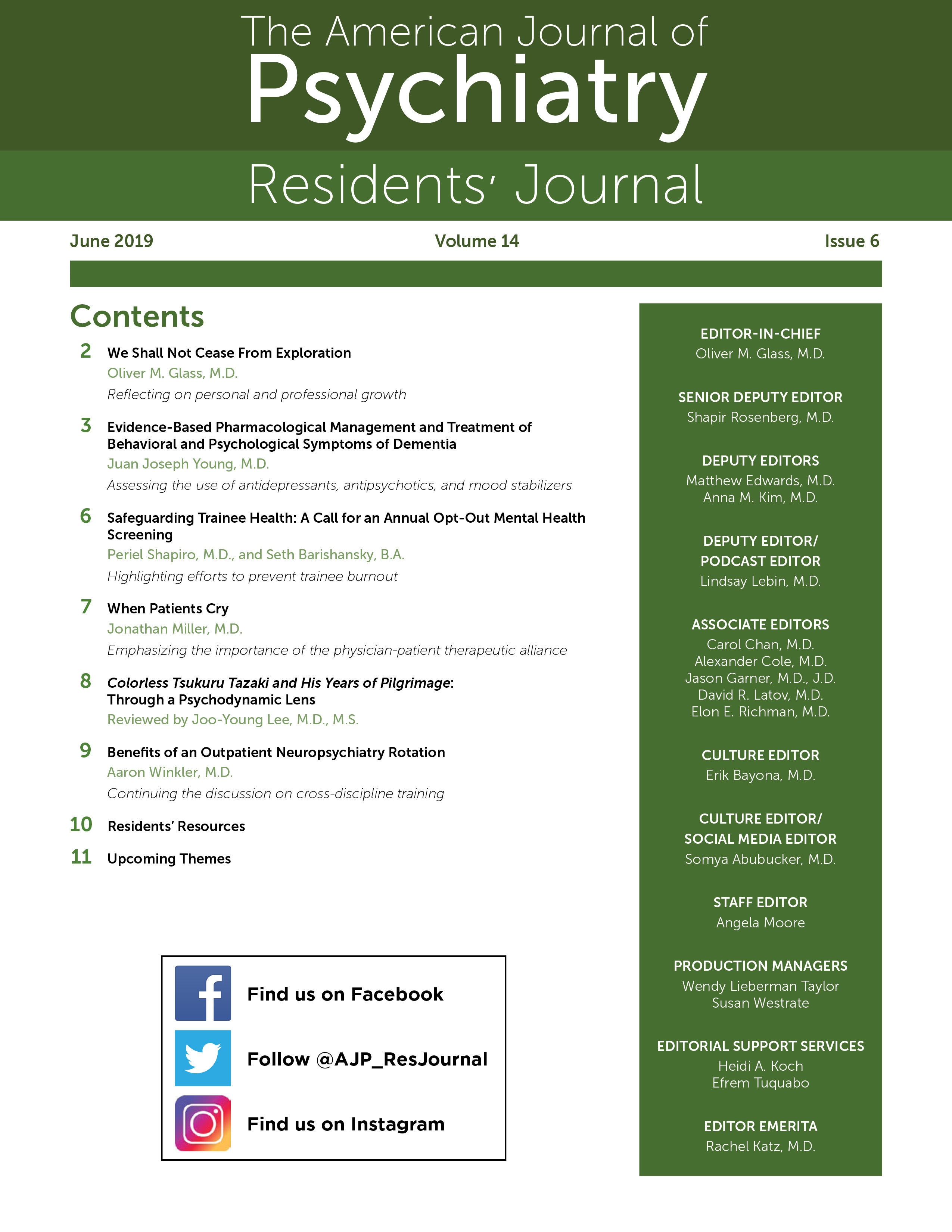To the Editor: In the April 2019 issue, Drs. Lane and Lyndon (
1) argued that postgraduate medical training should include "more neuroscience within psychiatric curricula and vice versa." They proposed "a two-pronged solution: integrating didactic curricula and building longitudinal clinical experiences." One clinical experience that fulfills this aim and might be integrated beneficially into both psychiatry and neurology programs is a year-long, full-day, outpatient neuropsychiatry rotation.
In PGY-1, residents in our psychiatry program rotate 1 half-day each week for 2 months in the neuropsychiatry program at Sheppard Pratt Hospital System under the supervision of the program director, Vassilis Koliatsos, M.D. The residents mainly see patients who have survived severe traumatic brain injury (TBI) or anoxic brain injury, although many patients with dementia, autism, and other developmental conditions are seen in the clinic as well. Stable patients are generally seen every 3 to 6 months, such that residents are unlikely to encounter the same patient twice during their 2-month rotation. As a PGY-3, I have had the unique good fortune to spend a full day in the clinic each week for an entire year. The value of the longitudinal experience cannot be overstated. In addition to seeing the natural course of illness unfold, there grows a meaningful doctor-patient relationship with patients—a relationship that residents rarely share with survivors of severe brain trauma or other neuropsychiatric conditions.
Importantly, the neuropsychiatry clinic is neither a neurology clinic nor a psychiatry clinic. It is both. Someone with a TBI from a car accident that occurred after years of alcohol use may have liver and kidney dysfunction from the accident or from premorbid substance use. This dysfunction might contraindicate lithium or valproate management of mood swings caused by, or worsened by, contusion to the right hemisphere. The same patient may also become violently aggressive with care staff and peers when levetiracetam is prescribed for posttraumatic epilepsy. But because of dense polypharmacy, the patient may be a poor candidate for carbamazepine therapy. Managing such complexity requires broad comfort with the pharmacopoeia and an awareness of nonpharmacologic treatments. Over the course of the full-year rotation, I have been pleasantly surprised to watch such patients make dramatic progress when there is careful, attentive management.
I agree with Drs. Lane and Lyndon. One possible implementation of their recommendation is a full-year rotation treating patients in a neuropsychiatric outpatient clinic. One hones neurological exam skills and knowledge of the neurological basis of disordered function, and one has the first-hand opportunity to build and deploy solid and varied pharmacologic knowledge. The very same clinic may allow neurology residents to expand their experience treating mood, obsessional, and psychotic disorders among patients with concurrent neurological dysfunction. Perhaps most important, neurology and psychiatry residents could profitably work side by side, building skill as clinicians and also rapport as colleagues.
